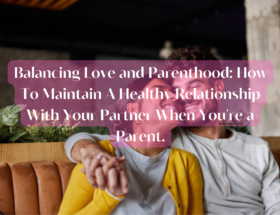Depression is a serious mental health condition that affects millions of people worldwide. It goes beyond simply feeling sad or down; depression can significantly impact a person’s thoughts, emotions, and daily functioning. Recognizing the signs and symptoms of depression is crucial for both individuals experiencing it and those around them. In this article, we will explore the common signs of depression, the various factors that contribute to its development, and the importance of early recognition. We will also discuss seeking professional help, self-help strategies, building support systems, and breaking the stigma surrounding mental health. By increasing awareness and understanding, we can pave the way for a more compassionate approach towards recognizing depression and seeking the necessary help and support.
Understanding Depression and Its Impact
Defining Depression
Ah, depression. That pesky villain that likes to rain on our parade. But what exactly is depression? Well, it’s not just feeling sad or down once in a while—it’s a whole lot more than that. Depression is a mental health disorder that can leave you feeling like you’re stuck in a never-ending cloudy day, with a side of emotional turbulence and a sprinkle of self-doubt.
The Impact of Depression on Mental Health
Depression isn’t just a mood swing that you can shake off with a good cup of coffee (although caffeine does help, I won’t lie). It can have a profound impact on your mental health, throwing off the delicate balance of chemicals in your brain and leaving you feeling emotionally drained. It can hijack your thoughts, making it hard to concentrate or find joy in things that used to bring you happiness. In short, depression can turn your world upside down and leave you feeling like you’re navigating through a never-ending maze.
The Importance of Early Recognition
Just like a pesky mosquito bite, the sooner you recognize the signs of depression, the better. Early recognition is key in tackling this sneaky foe head-on. By identifying the signs and seeking help early on, you can prevent depression from spiraling out of control and robbing you of your well-being. So, let’s roll up our sleeves and get to know those signs, shall we?
2. Common Signs and Symptoms of Depression
Emotional Symptoms
Depression loves to play with your emotions like a mischievous kitten with a ball of yarn. You might find yourself feeling persistently sad, empty, or hopeless. Crying spells may become your new favorite pastime, and even the simplest tasks can feel overwhelming. Irritability becomes your middle name, and you may lose interest in activities you once enjoyed. Oh, joy.
Physical Symptoms
Depression doesn’t just mess with your emotions; it also has a knack for wreaking havoc on your physical well-being. You might experience changes in appetite or weight, feeling either ravenous or finding food utterly unappealing. Your energy levels may plummet, leaving you feeling tired and sluggish even after a full night’s sleep. And don’t forget the aches and pains that could become your new unwelcome companions. Thanks, depression. Not cool.
Cognitive Symptoms
When depression decides to take over your mind, it’s like having an unwanted roommate who leaves their dirty socks lying around everywhere. Your concentration may go down the drain, making it hard to focus on even the simplest tasks. Decision making becomes a Herculean feat, with even the choice between pizza and tacos feeling like an impossible dilemma. And oh, the intrusive negative thoughts that seem to taunt you at every turn. No need to thank depression for this delightful brain fog.
Social Symptoms
Depression isn’t just a solo act; it loves to mess with your social life too. You may start avoiding social activities, preferring to hibernate under your blanket fortress. Your relationships may suffer as you withdraw from loved ones, and you may find it hard to connect with others or express your feelings. Depression loves to make you feel alone in a crowded room, but remember, you’re not alone in this battle.
3. Factors that Contribute to Depression
Genetic and Biological Factors
Depression, being the multifaceted beast that it is, can be influenced by various factors. Genetics can play a role, with certain genes potentially increasing your vulnerability to depression. It’s like inheriting the “I’m susceptible to feeling blue” trait from Aunt Mildred. Biological factors, such as imbalances in brain chemicals like serotonin, can also contribute to the development of depression. So, you can blame biology for those cloudy thoughts.
Environmental and Lifestyle Factors
Your environment and lifestyle can also cozy up to depression and make it feel right at home. Factors such as experiencing a traumatic event, going through a major life change, or living in a less-than-stellar social environment can all pile up and increase the risk of depression. Lifestyle habits like poor sleep, lack of exercise, and unhealthy coping mechanisms (looking at you, pint of ice cream) can also lend a helping hand to depression’s takeover plan. Thanks for nothing, environment and lifestyle.
Psychological Factors
Let’s not forget our old friend, psychology. Negative thinking patterns, low self-esteem, and a history of other mental health issues can all contribute to the development of depression. It’s like opening the front door and inviting depression to join your little psychological party. But fear not, because recognizing these factors can help you understand the why behind depression and pave the way for seeking help.
4. The Importance of Recognizing Depression in Yourself and Others
Understanding the Dangers of Ignoring Depression
Ah, the good old “ignore it and it’ll go away” tactic. Unfortunately, depression doesn’t work like unwashed dishes in the sink—it won’t magically vanish if you ignore it. Ignoring the signs of depression can make things worse, leading to more severe symptoms and an increased risk of self-harm or suicide. So, let’s ditch the ostrich approach and face depression head-on.
Empathy and Compassion in Identifying Depression
Sometimes, recognizing depression in yourself or others requires a little empathy and compassion. Depression is a tough cookie, and it’s not always easy to spot. By practicing understanding and kindness, we can create a safe space for people to open up and seek help. So, let’s be the warm and fuzzy blankets in a cold and stormy world.
Recognizing Depression in Loved Ones
Depression doesn’t discriminate—it can affect anyone, including our loved ones. So, it’s crucial to keep an eye out for the signs in those we hold dear. Look for changes in their behavior, withdrawal from activities they used to enjoy, or persistent low moods. And, most importantly, let them know that you’re there with a listening ear and a shoulder to lean on. Sometimes, all it takes is a little love and support to make a big difference.
And there you have it, folks! The ins and outs of recognizing the signs of depression and seeking help. Remember, you’re not alone in this journey, and reaching out for support is the bravest thing you can do. Keep that chin up and let’s kick depression to the curb, one step at a time!
5. Seeking Professional Help: Options and Resources
Types of Mental Health Professionals
When it comes to seeking professional help for depression, there are a variety of mental health professionals who can offer support. From psychiatrists who can prescribe medication to psychologists who provide therapy, each professional has their own unique role. Don’t worry if you can’t tell the difference between a psychologist and a psychotherapist – they’re like the Batman and Robin of mental health professionals. The important thing is to find someone you feel comfortable talking to and who is qualified to help with your specific needs.
How to Find the Right Therapist
Finding the right therapist is a bit like finding the perfect pair of jeans – it might take some trial and error, but when you find the right fit, you’ll know. Start by asking for recommendations from friends, family, or even your primary care doctor. You can also search online directories or use therapy apps to find therapists in your area. It’s essential to look for someone who specializes in treating depression and has experience with the specific therapy approach you’re interested in.
Understanding Different Treatment Approaches
Therapy isn’t a one-size-fits-all solution for depression, so it’s essential to understand the different treatment approaches available. Cognitive-behavioral therapy (CBT) focuses on changing negative thought patterns, while psychodynamic therapy explores how past experiences may be influencing your current struggles. Other options include interpersonal therapy (IPT) and mindfulness-based therapy. Remember, therapy is a bit like a buffet – you can try a few different approaches and see what works best for you.
6. Self-Help Strategies for Managing Depression
Healthy Lifestyle Habits
While there’s no magic cure for depression, taking care of your physical health can have a positive impact on your mental well-being. Regular exercise, eating nutritious meals, and sleeping well are like the holy trinity of self-help strategies. So, dust off those running shoes, stock up on fruits and veggies, and say goodnight to those late-night Netflix binges (at least most of the time).
Practicing Self-Care
Self-care is like hitting the reset button for your mental health. It’s all about finding activities that bring you joy and help you relax. Whether it’s taking a warm bubble bath, indulging in your favorite hobbies, or treating yourself to something special, self-care is an essential part of managing depression. Oh, and there’s no shame in a little retail therapy – sometimes a new pair of shoes can be just the pick-me-up you need.
Exploring Mindfulness and Meditation
Mindfulness and meditation are like the zen masters of self-help strategies. They can help you stay grounded and present, even when the weight of depression feels overwhelming. Whether you try a guided meditation app, attend a mindfulness workshop, or simply take a few deep breaths, these practices can help you cultivate a sense of calm and improve your overall well-being.
7. Support Systems: Building a Network of Understanding and Empathy
The Role of Family and Friends
Family and friends can be your very own personal cheerleaders when it comes to managing depression. They can offer a listening ear, provide emotional support, and even help with practical tasks when you’re feeling low. Surround yourself with people who understand and believe in you – they’re like the superhero squad that’s always there to save the day.
Support Groups and Peer Networks
Sometimes it can be comforting to connect with others who are going through similar experiences. Joining a support group or engaging with peer networks can provide a sense of belonging and understanding. It’s like finding your tribe – a group of people who get it without judgment or explanation.
Online Communities and Resources
The internet isn’t just for cat videos and online shopping. It’s also a treasure trove of mental health resources. Online communities, forums, and websites can offer valuable information, support, and a sense of community. Just remember to take everything you read online with a pinch of salt – not every self-proclaimed “expert” is as knowledgeable as they claim to be.
8. Breaking the Stigma: Promoting Mental Health Awareness and Advocacy
Challenging the Stigma of Mental Illness
Let’s face it – the stigma surrounding mental illness is as outdated as a flip phone. By challenging negative stereotypes and misconceptions, we can create a more inclusive and understanding society. It’s time to turn up the volume on conversations about mental health and show that seeking help is a sign of strength, not weakness.
Education and Spreading Awareness
Knowledge is power, especially when it comes to mental health. Educate yourself and others about the signs and symptoms of depression, as well as the available resources for support. Share informative articles, attend mental health workshops, or even organize your own awareness events. The more we talk openly about mental health, the more we can help break down the barriers.
Becoming an Advocate for Mental Health
If you’re feeling extra ambitious, why not take your advocacy to the next level? Become a mental health superhero by advocating for policy changes, supporting mental health organizations, or even sharing your own story to inspire others. Remember, you don’t need a cape to make a difference – sometimes all it takes is a willingness to speak up and make some noise.In conclusion, recognizing the signs of depression and seeking help is of utmost importance for individuals and society as a whole. By understanding the impact of depression, identifying its symptoms, and taking proactive steps towards seeking professional help or implementing self-help strategies, we can effectively manage and overcome this mental health condition. Remember, you are not alone, and support is available. Together, we can break the stigma surrounding depression and foster a more empathetic and supportive environment for all.
FAQ
1. How can I differentiate between feeling sad and experiencing depression?
While feeling sad is a normal part of life, depression is characterized by persistent feelings of sadness, hopelessness, and a loss of interest in activities. If these feelings persist for an extended period, typically more than two weeks, and significantly impact your daily life, it may be a sign of clinical depression.
2. Is it possible for someone to have depression but not exhibit any noticeable signs?
Yes, it is possible for individuals with depression to mask their symptoms or appear fine on the surface. Some individuals may be highly skilled at hiding their emotional pain or may fear judgment or stigma. That’s why it’s essential to be mindful of subtle changes in behavior, withdrawal from activities, or unexplained physical symptoms that may indicate underlying depression.
3. Can depression go away on its own without treatment?
In some cases, mild depression may improve over time without specific treatment. However, for many individuals, depression does not typically resolve on its own and may worsen without appropriate intervention. Seeking professional help is crucial to receive appropriate treatment and support to effectively manage and overcome depression.
4. How can I support a loved one who is experiencing depression?
Supporting a loved one with depression is essential. Offer non-judgmental listening, empathy, and understanding. Encourage them to seek professional help, provide assistance in finding resources, and be patient as they navigate their journey towards recovery. Educate yourself about depression to better understand their experiences and offer ongoing support and reassurance.









